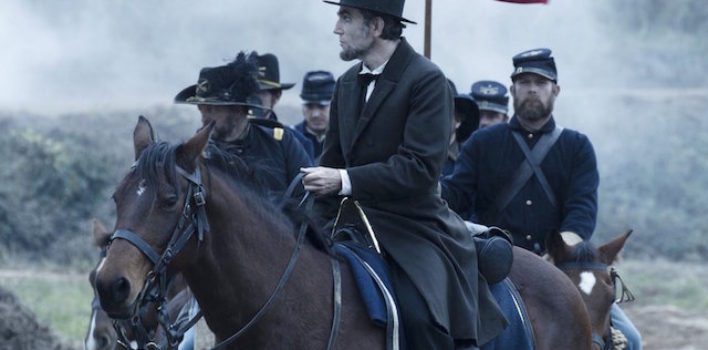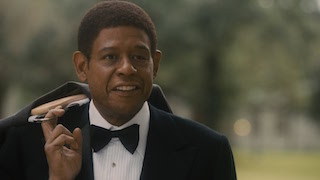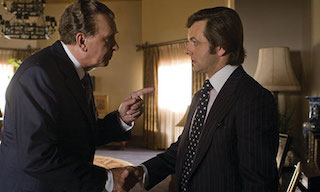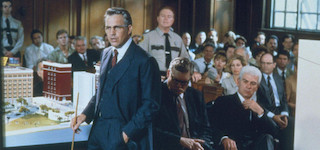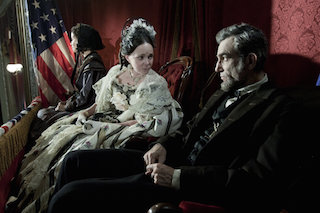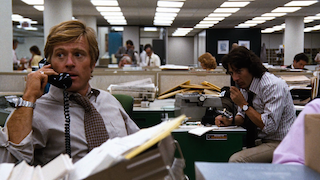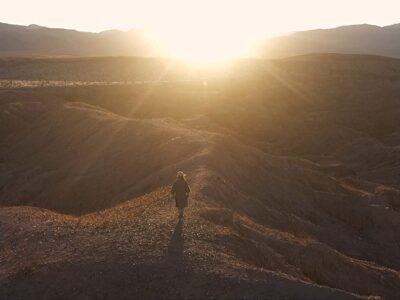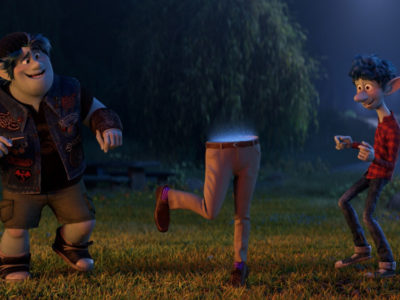Top 5 Presidential Dramas
With the very strange, very intriguing new movie Elvis & Nixon starring Michael Shannon as Elvis and Kevin Spacey as Nixon. The movie dramatizes the meeting between the two and tells the story behind the most requested photo in the National Archives. While Kevin Spacey already has plenty of practice as a morally bankrupt politician, the real interesting role is Shannon as Elvis. Set in the White House, the movie promises to be something completely different and potentially very interesting roles for both actors.
And that got the Top 5 wheels turning. What other dramatic movies take place in the White House or center on the life or true event of an American president? While there have been some great movies about the White House or the president that were entirely fictional, there are a handful of biopic dramas and real powerful stories with their core events taking place at 1600 Pennsylvania Avenue. So we hopped in the Reel World Air Force One to travel back through the decades and bring you the Top 5 Presidential Dramas. For our first stop, we head directly to the White House and to the most recent movie on this list.
5) Lee Daniels’ The Butler
Something you will quickly understand about all these movies, which will avoid mention as much as possible, is how all of them have endured some levels of controversy. While stories about President’s from the 60’s make up the majority, the other hot button issue in Presidential dramas is the issues of slavery, race, and the White House. Lee Daniel’s 2013 movie, The Butler, takes a unique look at the thirty-year career of White House butler, Cecil Gaines (Forest Whitaker), based on the real-life person, Eugene Allen. Over the course of a life that led from picking cotton to being a domestic servant, to being a butler at the White House and serving 8 US Presidents, from Eisenhower to Reagan, Gaines’ story explores the history of racial equality in 20th century America.
Daniels’ crafts a narrative that doesn’t always hit the mark. Throughout the course of the movie, there are many moments that seems crafted from real-life, but lean too heavily on happenstance and politicizing to stand sturdy. While the movie is brilliantly acted by Whitaker, Oprah Winfrey, who plays Cecil’s wife, and David Oyelowo as their son Louis Gaines, often I found myself growing weary of the movie making the same points over and over and having predictable emotional beats, as well as predictable character arcs. However, given all the elements going against it, there is an irresistible feel-good element to the movie and an incredibly important messages of equality, justice, and reconciliation. This may be one of the better films about the Civil Rights movement that also features an American President in a prominent, mostly positive role.
4) Frost/Nixon
Probably the last movie from erratic director Ron Howard I actually liked. Our country is still fascinated with “I’m not a crook” Nixon, and Howard made it the subject of his 2008 fictionalized movie based on the real events of the 1977 interview between Richard Nixon, played by Frank Langella, and Australian TV personality David Frost, played by Michael Sheen. Starting off more as a biopic, acquainting us with the much less-known Frost. After working his way to the top of his profession, Frost squandered much of his fame and had majorly fallen out in America. In a last-gasp effort to regain his once former standing, Frost procures an interview with the equally disgraced Nixon, to the tune of $600k of his own personal funds.
The genius of Howard’s narrative is how these two disgraced figures converge in the fateful interview. Frost seeks the resurrection of his career and Nixon his reputation with the American people. The interview allows Nixon the chance to obtain a public forum for confessing his part in the Watergate Scandal and the cover-up leading to his resignation. In fact, Langella plays Nixon as longing for the opportunity. Frost and Nixon’s fortunes are bound up together and the broadcast tête-à-tête is a fascinating scenario and brilliant acting. Surprisingly, the movie did not win any of the five Academy Awards it was nominated for, but it stands as one of the better movies focused on a US President. Even if it is the only President to ever resign from office.
3) JFK
Oliver Stone’s iconic 1991 film was controversial in its day and still remains so almost 30 years later. Kevin Costner plays the dubious role of New Orleans DA, Jim Garrison, whose passion for uncovering the true mystery behind JFK’s assassination was subject to controversy in his day and when Stone’s movie debuted. Spanning a runtime of more than three hours, Stone manages to take a boatload of material and somehow make a coherent and powerful film. Taking on one of America’s greatest mysteries, Stone seeks to build a case, changing some of Garrison’s beliefs along the way, for uncovering a government conspiracy to assassinate the President.
And much like all the other movies on this list, a parade of Hollywood stars, old and new, make appearances as key actors in the movie. Joe Pesci, Gary Oldman, Ed Asner, Jack Lemmon, Vincent D’Onofrio, Sissy Spacek, Wayne Knight, Michael Rooker, Walter Matthau, Tommy Lee Jones, John Candy, Kevin Bacon, Donald Sutherland, and Martin Sheen as the uncredited narrator of the film. My favorite out of this bunch is not an in-movie performance, but Wayne Knight’s connection to the famous JFK parody scene from Seinfeld where Jerry reenacts the “magic bullet” scene with a magic loogie and Keith Hernandez. The movie made quite an impression on popular culture and continues to keep the embers burning as we await October 2017; the date when the CIA files were set to be made public. In the meantime, why not pop this into your Blu-Ray player and catch up on this while we wait?
2) Lincoln
Arguably the best film Spielberg has directed since 2002’s Catch Me If You Can, Spielberg’s 2012 biopic/drama loosely based on Doris Kearns Goodwin’s book, “Team of Rivals”, is his latest masterpiece. The movie follows the events of Abraham Lincoln’s final months in office and his passionate quest to pass the 13th Amendment to the United States Constitution; the abolition of slavery. Carefully weaving between the various subplots surrounding Lincoln’s efforts to pass the amendment, Spielberg tells the story of the stubbornly principled, lovingly compassionate, but lonely man we revere as one of, if not the greatest President our country has ever had.
Daniel Day-Lewis brings out a side of Lincoln that is less legendary and more fitting with the historical figure. Lincoln is wearied by the office of President and the burden of fighting the countries first and only Civil War. Yet, he views this fight for the 13th Amendment to be more important than ending the war. As he states late in the film, the specter of slavery is a disease in need of curing and the war a pestilence. Day-Lewis plays the part with masterful aplomb, carefully navigating the image our culture has conjured of the 16th President and the flawed, but resolute historical man. He is admirable for his intelligence, winsome charisma, and unequivocal stance on freeing slaves. Perhaps his greatest failing is his relationship with his family, who clearly have suffered because of his drive and great responsibility. Nonetheless, when the movie concluded, I couldn’t help but weep. Both for the beauty of Spielberg’s film and an appreciation for who Lincoln was.
1) All the President’s Men
From the sweeping, inspiring epic of an American legend, to the sordid underbelly of Washingtons darkest days. And it is truly dark in every way. Playing with darkness and shadow in ground-breaking ways that would be oft-copied after, director Alan J. Pakula creates a mood of shadowy lies enveloping the nation’s capital. In the midst of the shadows are the press, the fourth estate, and the efforts of Washington Post reporters Woodward (Robert Redford) and Bernstein (Dustin Hoffman) to uncover what everyone else in the city seems to want to keep safely hidden from sight. The movie is brilliantly moody and procedural, building its brilliance on the mood and phenomenal acting of its cast. While Redford and Hoffman are fantastic in their roles, my favorite of the entire movie is their boss at The Post, Ben Bradlee, played by Jason Robards. He’s wary of trusting the two young reporters, but their hunger and fight bring him around to trust them, even when his reputation is on the line. His resolve and eventual confidence in the story climaxes in a spectacular moment, delivered at night, of course, in front of his personal residence, summing up the importance of their work and the effect good journalism can have on positively influencing an entire nation.
The comparisons to the most recent Best Picture winner, Spotlight, abound, and McCarthy’s movie owes much of its genius to Pakula’s. Some scenes from Spotlight seem lifted straight from All The President’s Men, and the procedural nature of both films belie the vast importance of the conspiracies they are uncovering. One deals with revealing corruption at the highest level of government, the other at the highest levels of spiritual authority. Both movies avoid politicizing the material, but they both make important statements about cultural realities that are as true today as they were when the movies came out. However, Spotlight will forever be in the debt of its cinematic predecessor for making it’s Best Picture win possible.


